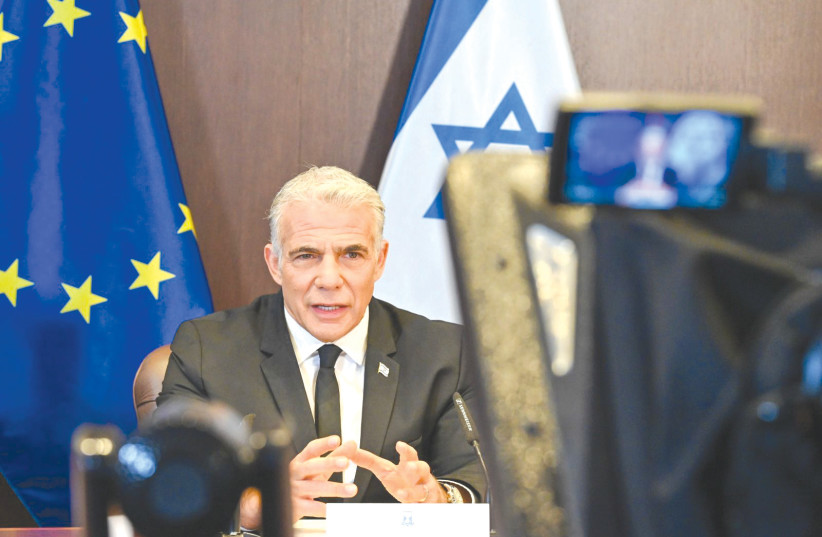A protest in support of Ukraine took place near the embassy of the Russian Federation in Tel Aviv on Monday as Russia's invasion of Ukraine, which began in late-February, continued.
Organized by the NGO "Israeli Friends of Ukraine," the rally came as a response to Russia's most recent round of massive missile and drone attacks on the civilian population and infrastructure of the beleaguered country, in which 19 people were killed, more than 100 were injured and numerous buildings across Ukraine were destroyed.
Despite coinciding with the start of Sukkot, dozens of Israelis and visitors participated.
The protesters arrived with Ukrainian and Israeli flags, antiwar banners and slogans, and sang both Israeli and Ukrainian national anthems, and demanded all military actions cease on the territories of sovereign Ukraine, and that Russia de-occupy all the lands that were taken. The protesters also called to recognize Russia as a state that sponsors terrorism.
Although the event remained peaceful, according to the organizers, police pushed protesters as far away from the embassy as possible out of fear of potential vandalism and violence.
What is the Israeli government response to Russia's barrage?

Additionally on Monday, Israeli Prime Minister Yair Lapid officially condemned the Russian attack on Ukraine. The statement was the first of its kind from an Israeli prime minister.
“I strongly condemn the Russian attacks on the civilian population in Kyiv and other cities across Ukraine,” Lapid wrote. “I send our sincere condolences to the families of the victims and the Ukrainian people.”
In recent weeks, Israel said it would not recognize Russia’s annexation of swaths of Ukraine. Lapid had condemned Russia’s invasion in the early days of the war in February and March, when he was foreign minister.
However, then-prime minister Naftali Bennett did not explicitly condemn Russia, in part because of his attempts to mediate between Moscow and Kyiv, but primarily because of its deconfliction mechanism with Russia in Syria, allowing the Israel Air Force to attack Iranian targets over its northern border where the Russian Army has a large presence, as well as concern for the wellbeing of Russian Jews.
Lahav Harkov contributed to this report.
